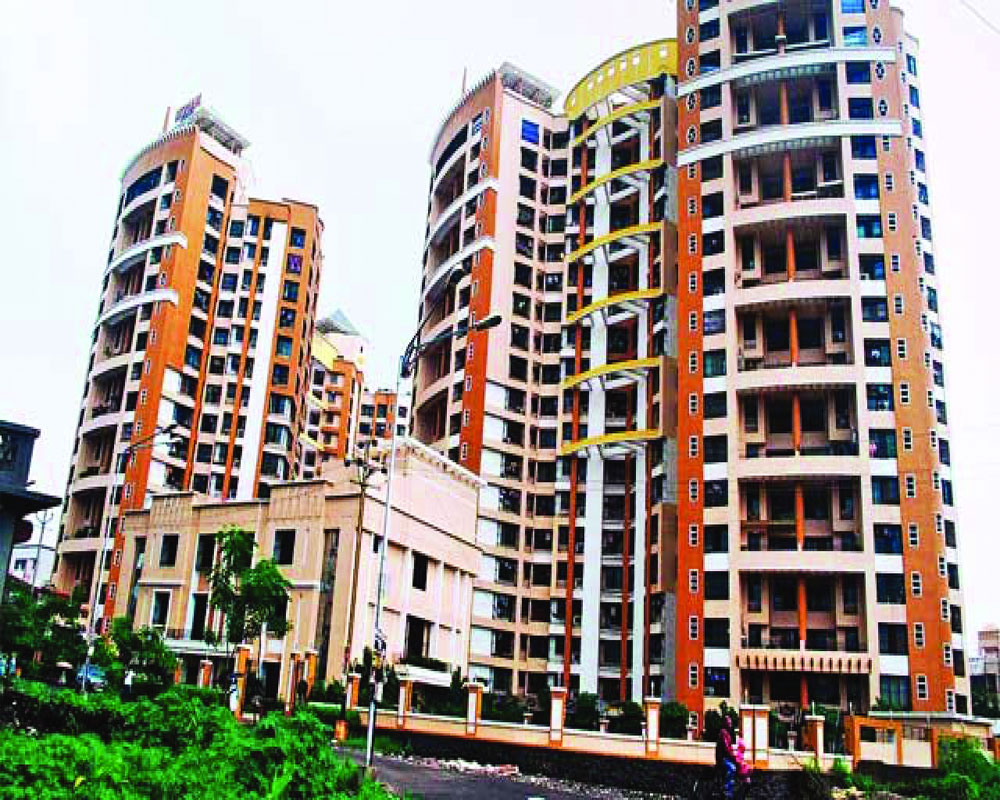COVID-19 has brought the real estate industry to a grinding halt. There is a level of uncertainty that was not seen in previous economic downturns, say Miniya Chatterji & Dhaval Monani, as they share solutions to save it
The real estate sector contributes 9% to India’s GDP and employs over 40 million people. It is a bellwether to the economy that has been going through a severe downturn over the last few quarters with affordable housing emerging as one of the few sustainable asset classes.
The COVID-19 pandemic has brought the industry to a grinding halt and brought in a level of uncertainty that was not seen in previous economic downturns. For the first time in an economic crisis people are also facing a genuine threat to life, mass reverse migration and prolonged isolation.
There is consensus that the pandemic will adversely affect the real estate sector. The real estate sector was already reeling from high inventory, low sales and cash flow issues but going ahead the situation is likely to worsen and the government should look to take pro active measures shore it up.
The lockdown will most likely be extended in areas that have emerged as hotspots across the country. We are likely to see layoffs and salary cuts across the board. Besides construction, retail, hospitality and entertainment sectors, other large employers and income generators with multiplier effects are likely to be the worst hit. Conversations with hospitality leaders indicate that most are factoring in virtually no revenue over the next two months and have brought in severe cost cutting measures.
What does this mean for the affordable housing segment?
We understand the affordable housing market broadly as homes priced under 40 lac rupees across tier I, II and III cities. This is a fairly new segment in India that mostly came into the picture 2006-07 onwards. Since then in downturns it has remained the most resilient.
The lowest end of the market, units priced Rs 5 lakhs to Rs 15 lakhs is largely catered to by the government under the Pradhan Mantri Awas Yojana (PMAY). The government is doing a fairly good job but unable to meet demand. The current model that mostly outsources the construction to contractors is inefficient and has high working capital requirements. It also doesn’t assign any value to the underlying land and is a huge drain on government resources. On the demand side, this segment is pre-dominantly first time buyers who are less financially sophisticated and invest in a home as their primary asset.
It is unlikely that there will be any sales in the affordable housing sector over the next quarter and possibly the second as well. Buyers tend to postpone their buying and particularly upgrading decisions in times of economic uncertainty. The biggest challenge though will be access to capital. The principal funders in the current environment will be banks and private equity players, and the expected cost of capital is likely to be 18-20% versus 12-15% pre-crisis. This could hamper the sector going ahead for the next few quarters.
Post crisis we believe the demand of these homes will increase dramatically for the following reasons. One, government homes are significantly undervalued and have easy access to financing. Second, real estate and particularly homes are already the most preferred investment vehicle in India. Especially in times of such uncertainty the economically weaker segment and the low income group would want to create an asset that would guarantee some security for their families. Third, we believe that post COVID-19 people, the sub 40 lakh market residents will opt not to upgrade and stay with their current homes, whereas the market immediately above 40 lakhs is often people up-grading from the sub 40 lakh market. It is therefore possible that over the next 6 to 8 quarters the affordable housing segment will be a bigger part of the overall housing market.
However, with the current model the government makes some loss on delivery of the unit, a complete loss on the value of the land and loss of interest on the working capital required. To address a substantially increased demand after COVID-19 ebbs, the government will have to create policies to incentivise supply and ease the bottlenecks to demand. The government would have to explore alternate models and a Public Private Partnership (PPP) could be one such.
We propose that the government could do some of the following:
- Structure developer friendly PPPs that incentivise large players to participate and create mega projects, this will reduce leakages and improve quality as compared to contracts to small local players
- Incentivise developers investing in affordable housing by bringing them under priority sector lending
- Grant a one time one year moratorium on all debt and interest payments
- Recast project specific debt for affordable housing projects and bring it under the anvil of priority sector lending
- Waive off stamp duty for affordable housing loans
- In case of housing under 40 lakhs, the government could classify mortgages under priority sector lending to drastically reduce interest rates and Equated Monthly Installments (EMIs)
- Give accelerated single window clearance under set timeframes
- Extend income tax exemption under Section 80 IB(A) and completely remove MAT retrospectively
These incentives would not put a load on government finances but incentivise both developers and buyers. This could help the economy in general to come out of the downturn much faster.
Dhaval Monani is CEO First Home Realty Services; Director of Affordable Housing at Centre for Sustainability, Anant National University and Dr. Miniya Chatterji is CEO Sustain Labs Paris; Adjunct Professor, SciencesPo Paris; Director of Centre for Sustainability, Anant National University


























